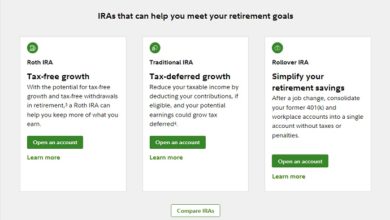
The right way to invest $50,000 using asset allocation. Invest 50,000 dollars in bonds, stocks, mutual funds, business & real estate for diversification.
Where to invest 50,000 dollars? A reader of InvestmentTotal.com asked me about this question on investing, he asked “Is it better to invest $50,000 in Equities or bonds? I received an email from him asking for an advice, in his email stated that “Hi InvestmentTotal,I am very thankful I found your blog and I’ve learned a lot from your blog especially investing, I just want to know if i have funds amounting to 50,000 dollars, where should I invest this fund, equities or bonds”.
I don’t want to mention his name here coz’ its very private and personal. My answer to this question is based on my own and other investors experiences.
Actually, investing is not just only a matter of numbers, it is a matter of how a specific goal should be met. If you have a certain financial goal you want to meet, you should be careful on where to allocate you $50,000.
Invest $50,000 in Equities or Bonds?
Awhile ago, I wrote a topic about the future worth of $50,000 one time investment, and it is possible to turn your $50,000 into millions if invested properly. Be sure you know your risk profile, if you are not an aggressive investor and want only to take moderate risk, you can invest both stock securities and bonds.
But you have a big chance that you can maximize your $50,000 earning potential if you invest purely on securities. You have to know also if until when you stay invested, the more years your money stay invested the more profits it can make, but of course, be aware that there is a certain risk involved in investing.
Investment Allocation for $50,000
As a rule of thumb, you can invest using 70/30, means 70% for equities and 30% invest in bonds. It means if the stock market crash, you still have 30% money that is use to help you recover from financial losses. Don’t assume bonds are not risky, any types of investments are risky. You can invest long term in stocks and short term in bonds.
Also Read: Stocks and Bonds and Diversified Investments
If he is 25 years old, he probably invest 75% in equities and 25% in bonds. If the investor is 30 years old, maybe he should put his investments ($50,000) 70% in equities and 30% bonds. If he is 40, 60% stocks and 40% bonds. Simply means, just subtract his age to 100, the answer must be the allocated percentage in high risk (securities) and the remaining is in low risk investments.
Related: Which Investments Can Give Highest Returns
Continually Learning Financial Investment
Please study the asset allocation for investors age 30 for more information on how should your investments be distributed.
Know Your Investment Purposes
In investing, you should know your target return on investment, the date when you want to get the return and the reasons why you’re investing your money. Some people invest for the preparation of the education of their kids, some people invest to buy a car, to build a house and few are investing because they are planning to retire comfortably because their investments tend to use as a passive income in the near future, they want their money to work hard for them when they retire. What about you, what is your goal or purpose why you’re investing?
I do hope you find this article useful. Now you know where to invest $50,000, right? It is advisable that you should ask a certified financial planner to help you make a plan and achieve your investment goal.









DISCLAIMER: The information provided on InvestmentTotal.com is for general informational purposes only. The content on this website is not intended to be, and should not be construed as, professional financial advice.